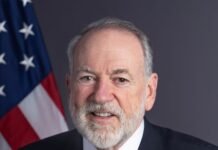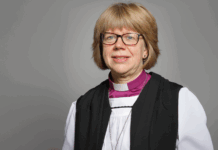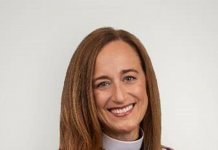Letter to the Sunday Telegraph, 10 Feb 2024
I am a strong supporter of the role of bishops in the House of Lords, not least because they are one of very few groups in the House that has strong regional experience and support. Their voice is respected by other peers and on the whole heeded.
But I believe they are wrong on the issue of migration. Of course, I agree with them wholeheartedly when they point out that we are a welcoming country, partly the result of being a nation composed of immigrants over many hundreds of years. My paternal grandfather came from County Cork in Ireland at the beginning of the last century seeking work and settling down here. They will also remind us that the Christian story begins with the family of Jesus seeking refuge in Egypt. So I am not deaf to the cry of the homeless and the desperation that drives people to risk a perilous crossing of the Channel in a tiny boat.
But the Church of England’s opposition to the Rwanda legislation for example has disturbed me by its ferocity and intensity. The Rwanda plan has been denounced from pulpits up and down the land. And in my increasingly long memory, I have never known the Peers Spiritual – the 26 bishops who sit by right in the House of Lords – lay down such an array of detailed amendments.
My disagreement with the Archbishop and bishops in the House, therefore, is not with their compassion and Christian care for others, but their blindness to what migration is doing to our country – our culture, our infrastructure and our common life.
We have been here before and we have failed to do anything about it. In 2010, I joined Parliamentarians including former Speaker, the late Baroness Boothroyd, and the great Labour MP, Frank Field, in signing the Balanced Migration Group’s Declaration. This called on the major parties to make manifesto pledges to prevent the UK’s population reaching 70 million in under 20 years, as it was forecast to at the time.
How wrong we were. Not, as it turns out, in making the declaration, but in trusting official projections. According to the Office for National Statistics, we will reach that 70 million figure at least four years early. By mid-2036, we are now projected to grow to 73.7 million.
So my concern and attention is also for those affected by a severe lack of housing and services, a situation which is reaching breaking point in poorer areas. The elites are well-protected, but Britain’s poorest have a different experience. An experiment in mass immigration has been foisted upon them without their consent, changing their lives and their communities.
I’ve been surprised therefore by the thin-skinned nature of the church’s response in this latest controversy. When you raise your head above the parapet you must expect to be criticised. I know I will be over this article. But the Church hierarchy seems to be denying that there is a problem at all, or anything questionable about its own actions and statements.
One result of this is that churches stand accused of boosting the credentials of asylum seekers and gullibly accepting insincere conversions. This is not in fact so, because it is the Home Office and the judiciary’s job to apply the asylum rules – not the Church.
But the Church of England’s guidance gives information to clergy on how to “mount a personal campaign” if an application is refused. It does not give much advice on how to discern whether these conversions are authentic, long-standing and life-changing. While it is true that most clergy are experienced enough to deal with these sorts of pastoral situations, the Church should do more to insist that baptism preparation is rigorous.
The truly depressing thing about this is that Christian converts in some countries are among the most persecuted minorities in the world. Genuine converts in countries where a considerable risk is taken by “apostasising” find themselves undermined by a handful of false cases where people are gaming the system.
In recent years, church leaders have been slow to come forward to join me in making representations to the Home Office and the UNHCR, to ensure that flows of refugees from Syria and Afghanistan have included persecuted Christians. I am Patron of Barnabas Aid, a charity founded in the UK, which has supported hundreds of persecuted Syrian and Afghan Christians in gaining asylum in countries like Australia and Brazil. But the UK government has never accepted a single one of these most persecuted Christian converts living in daily fear in hostile environments.
In the future, I believe we must accept that there will be large flows of refugees and migrants throughout the world. I agree with the Archbishop of Canterbury that the UK government should lead international talks aimed at reframing our international obligations on refugees. We live in a different era dominated by conflict, food insecurity and climate risk.
I would urge political parties to make manifesto commitments to address the refugee crisis. These should include measures to bring down numbers, but should also ensure that there is democratic consent and accountability. Our politicians and church leaders should do much more to listen to the voices of those struggling communities which feel alienated and marginalised by unprecedented rates of immigration.
And those seeking asylum should only be given that honour on the strict understanding that they must leave behind the political and moral structures of their former societies that are incompatible with the open, democratic values of their new homes.



